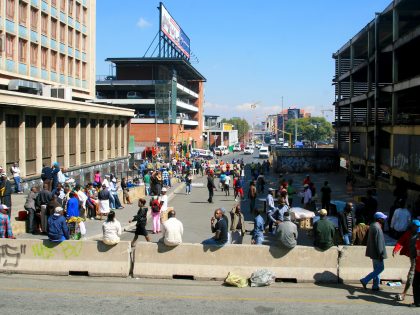
What does it have to do with Marikana?
The Marikana Massacre changed democratic South Africa forever. It can also catalyze resistance to the current order.

The Marikana Massacre changed democratic South Africa forever. It can also catalyze resistance to the current order.

The left's win in Colombia signals that after more than six decades of war, people just want to live with dignity and in peace.

South Africa’s ruling party’s devotion to its policy of cadre deployment is an indication that it values its own power more than the public interest.

The novelist on 3 books he returns to: by Wole Soyinka, Ibn Khaldun, and a third on the history and the system of writing of an early 20th-century Cameroonian king.

Journalism has become a risky and dangerous business in Benin.

Africa's engagement with the world before European colonialism holds unexpected episodes of un-colonial power relations.

Why languages, particularly black African languages, have become a battleground in postapartheid power and identity politics in South Africa.

Before the Soweto Uprising in 1976, students and workers organized one of the largest strike actions in South Africa’s history.

What happens to the contemporary explosion of moral panics, urban legends, and other paranoid narratives when they manifest in a place like South Africa?

This month on Africa Is a Country Radio, we continue our theme of sports and music, and look at the history of Olympic success in athletics of various African countries.

The CFA franc, pegged to a strong Euro, penalizes African economies as well as regional trade and facilitates the development of Western multinationals.

Must indigenous knowledge be science to be valid? Philosopher Paulin J. Hountondji shows that we must ask why Africa is scientifically and technologically dependent in the first place.